11 Reasons So Many Women Are Afraid Of Driving Or Being A Passenger In A Car As They Age
Older women may develop a fear of driving and riding in a car as they get older.
 Bits And Splits / Shutterstock
Bits And Splits / Shutterstock As women get older, they tend to develop a more severe fear of driving as well as being a passenger in a car. This fear can stem from several factors that are physical, emotional, and psychological.
While these are not always factors that can be entirely prevented, there are measures that women can take in order to manage them and not allow their fear to dictate their every move. Whether it be meditation, physical and mental activities, or speaking with a healthcare provider, women are not subject to their fear, and they can work to overcome and get back on the road in a safe and confident manner.
These are 11 reasons so many women are afraid of driving or being a passenger in a car as they age:
1. Worsening vision
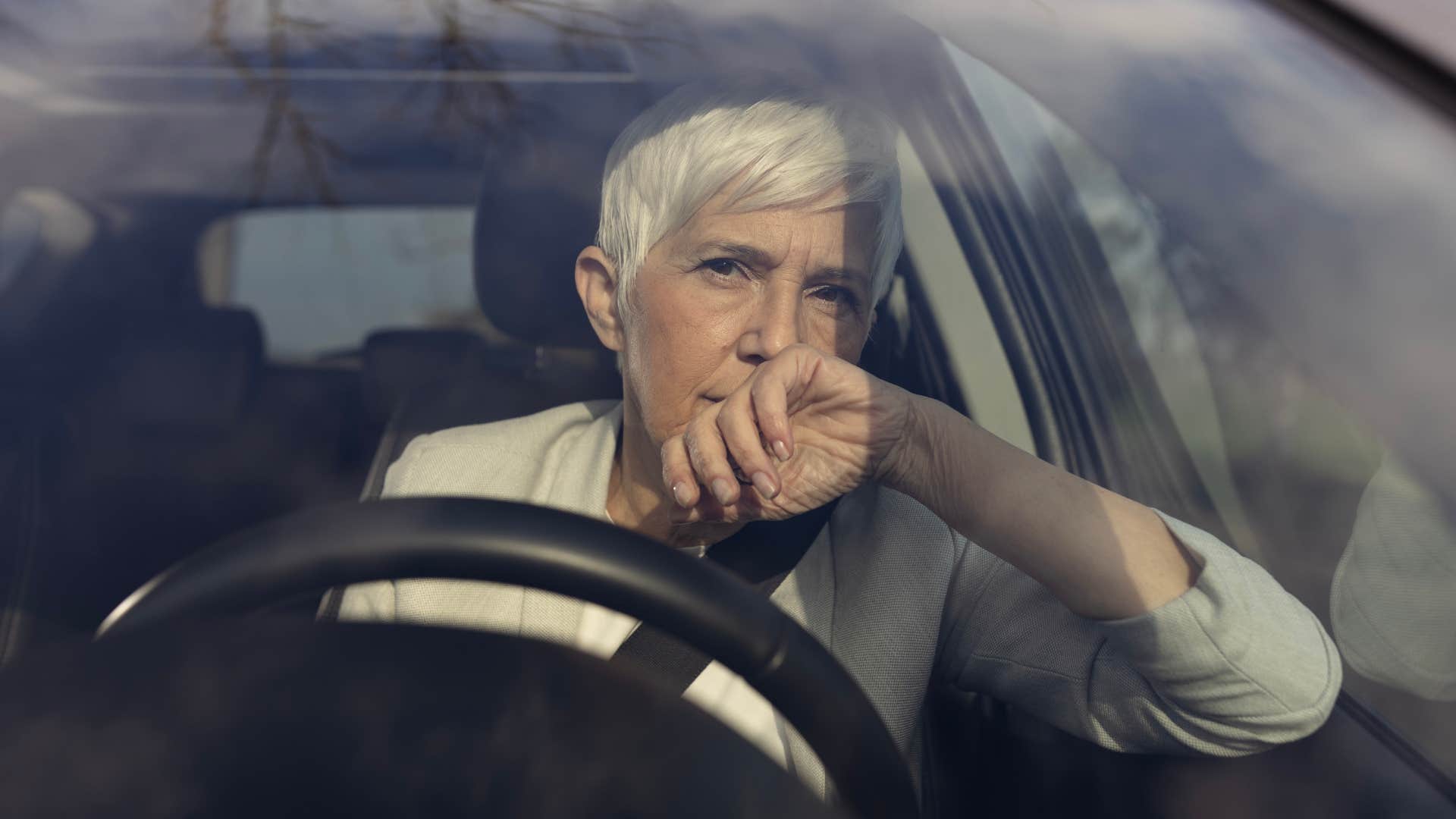 Budimir Jevtic / Shutterstock
Budimir Jevtic / Shutterstock
Becoming aware of a decline in her vision may make a woman more afraid of driving or being a passenger in a car as she gets older. Not being able to properly see street signs or people crossing the roads can be a scary thought because she will be aware of the potential consequences if something tragic were to happen. While driving at night, she may notice difficulty seeing clearly as other people’s headlights create a glare.
“Eye diseases, such as glaucoma, cataracts, and macular degeneration, as well as some medicines, can also cause vision problems. If you are 60 or older, get a dilated eye exam from your eye doctor every one to two years,” according to the National Institute on Aging (NIA).
Keeping up with the health of your eyes can make you feel more aware of what your abilities look like when it comes to operating a vehicle.
2. Slower reaction time
 Prostock-studio / Shutterstock
Prostock-studio / Shutterstock
As someone gets older, their reaction time starts to slow down, making them feel less confident when driving vehicles and when being a passenger. “Driving requires dividing your attention between multiple activities and being able to react quickly to situations that often arise without warning,” explains the National Highway Traffic Safety Administration (NHTSA).
The NHTSA recommends that when navigating while driving, as someone who now has a slower reaction time, women should plan their route ahead of time and possibly only drive on roads and in areas that they are familiar with. When a woman is a passenger, she can be an extra set of eyes and help ensure the driver does not get distracted.
3. Stiff joints
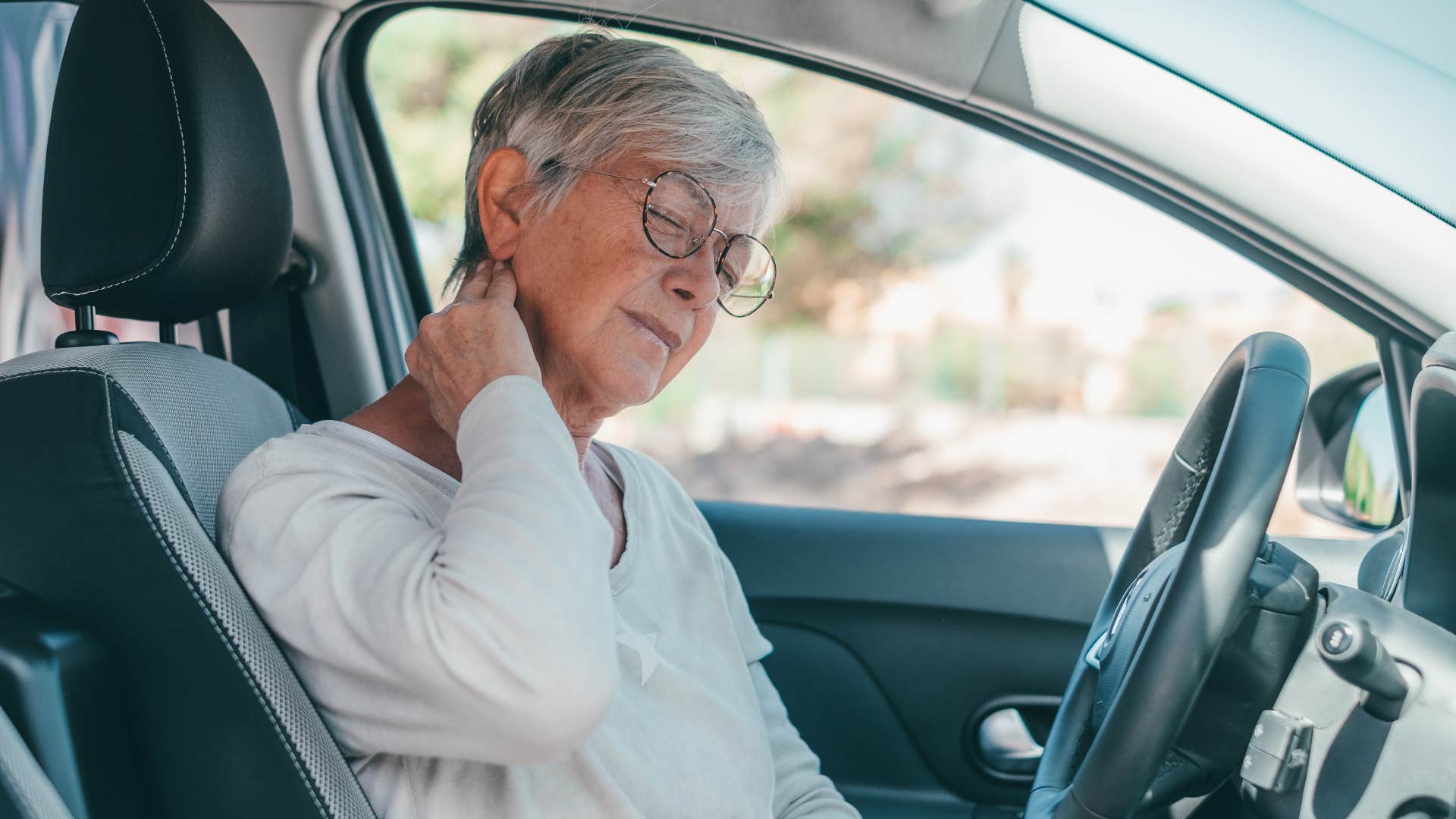 Perfect Wave / Shutterstock
Perfect Wave / Shutterstock
Getting older is usually accompanied by stiff joints and muscles, which can make it more difficult to drive. A 2024 study found that women account for 60% of cases of osteoarthritis, a gradual deterioration of cartilage in a joint, especially in their hands and knees. These findings make it understandable that as women get older, they tend to fear driving and being a passenger more than they once did, and potentially more than men do.
“Aging tends to result in a reduction of strength, coordination and flexibility — which can have a major impact on your ability to safely control a car. Stiff joints and muscles, reduced strength and coordination may make it difficult to turn your head, get in and out of the car, and may slow your reaction time,” according to the Rehab Hospital of the Pacific.
The Rehab Hospital also explains that for women to respond to changes in their strength and joints, they should engage in physical activity that focuses primarily on building strength. Additionally, while driving, they should brake sooner and maintain a sufficient distance between their vehicle and the cars in front of them.
4. Changes related to menopause
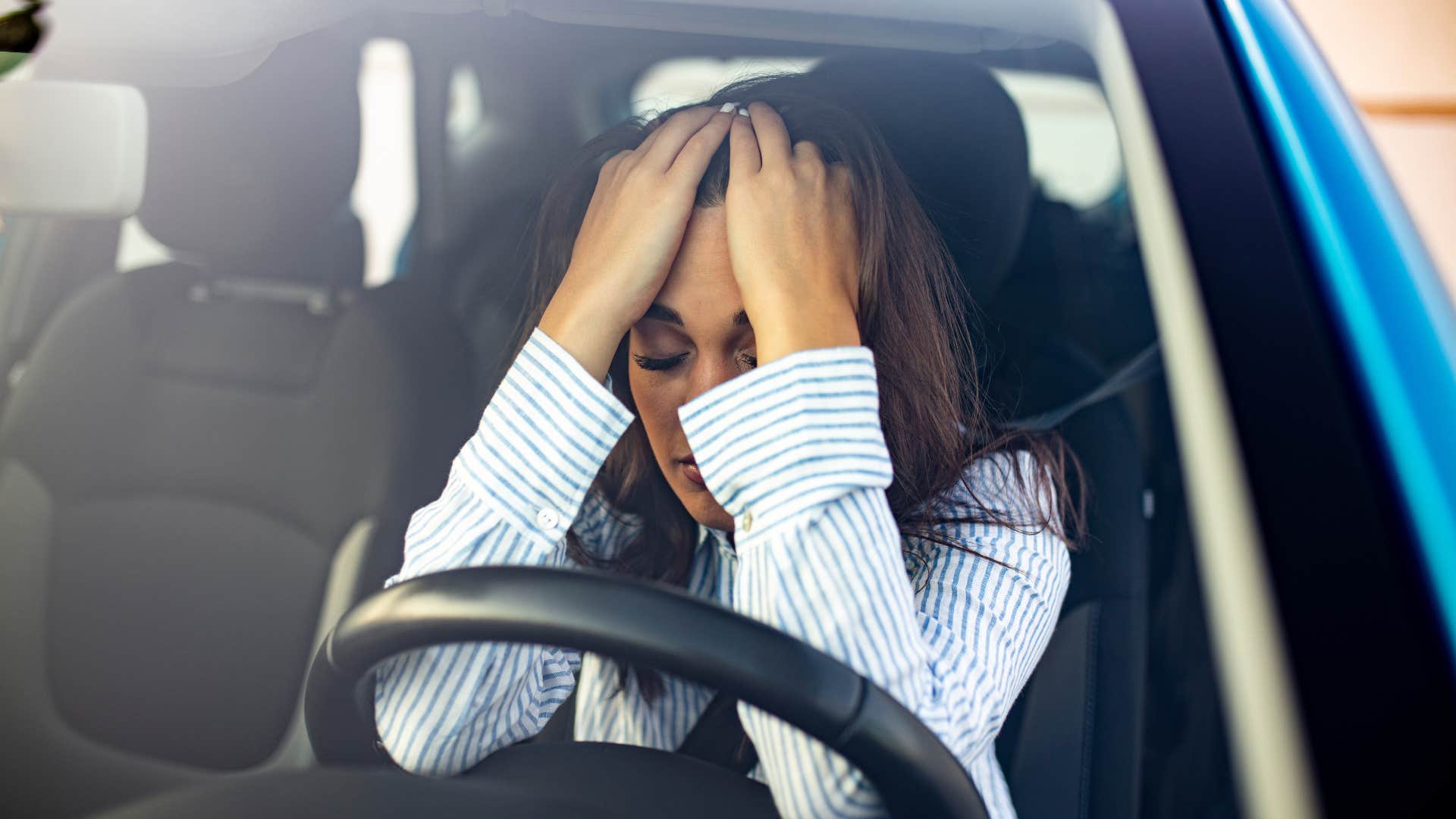 Dragana Gordic / Shutterstock
Dragana Gordic / Shutterstock
Menopause brings about several mental and physical changes in women. These changes, at times, can cause even the most redundant of activities to become nerve-wracking and scary. This is why women going through menopause might find the act of driving or being a passenger something to be afraid of, mainly due to the hormonal shifts they are experiencing.
“However, during this rewiring, when hormone levels fall, women can often experience anxiety, brain fog, mood changes, as well as the more well-known menopause symptom of hot flushes. These symptoms can be felt at any time but for some women, they manifest when driving, or even when they are a passenger in a car,” explains Dr. Louise Newson, a menopause specialist.
Newson recommends participating in relaxing techniques, replacing the right type and dose of HRT hormone that starts to lack as menopause occurs, and do not be afraid to ask for help when it comes to your own driving abilities.
5. Previous traumatic experiences
 Ground Picture / Shutterstock
Ground Picture / Shutterstock
Previous traumatic experiences, such as being involved in a car accident, may leave a woman who is getting older more afraid of operating a vehicle, as well as being a passenger. The severity of stress that she is now experiencing is likely the reason she feels more afraid now than she once did.
A 2020 study found that women are not only at a higher risk than men of developing posttraumatic stress disorder (PTSD), but as women near middle age, past traumatic experiences may have more of an impact on their overall well-being.
“In women, age was not associated with PTSD symptoms at 6-weeks and 6-months; however, age was curvilinearly associated with PTSD severity at 1-year post-MVA such that middle-aged women reported greater symptom severity than younger and older women,” explains the National Library of Medicine (NLM).
6. Anxiety and other medical conditions
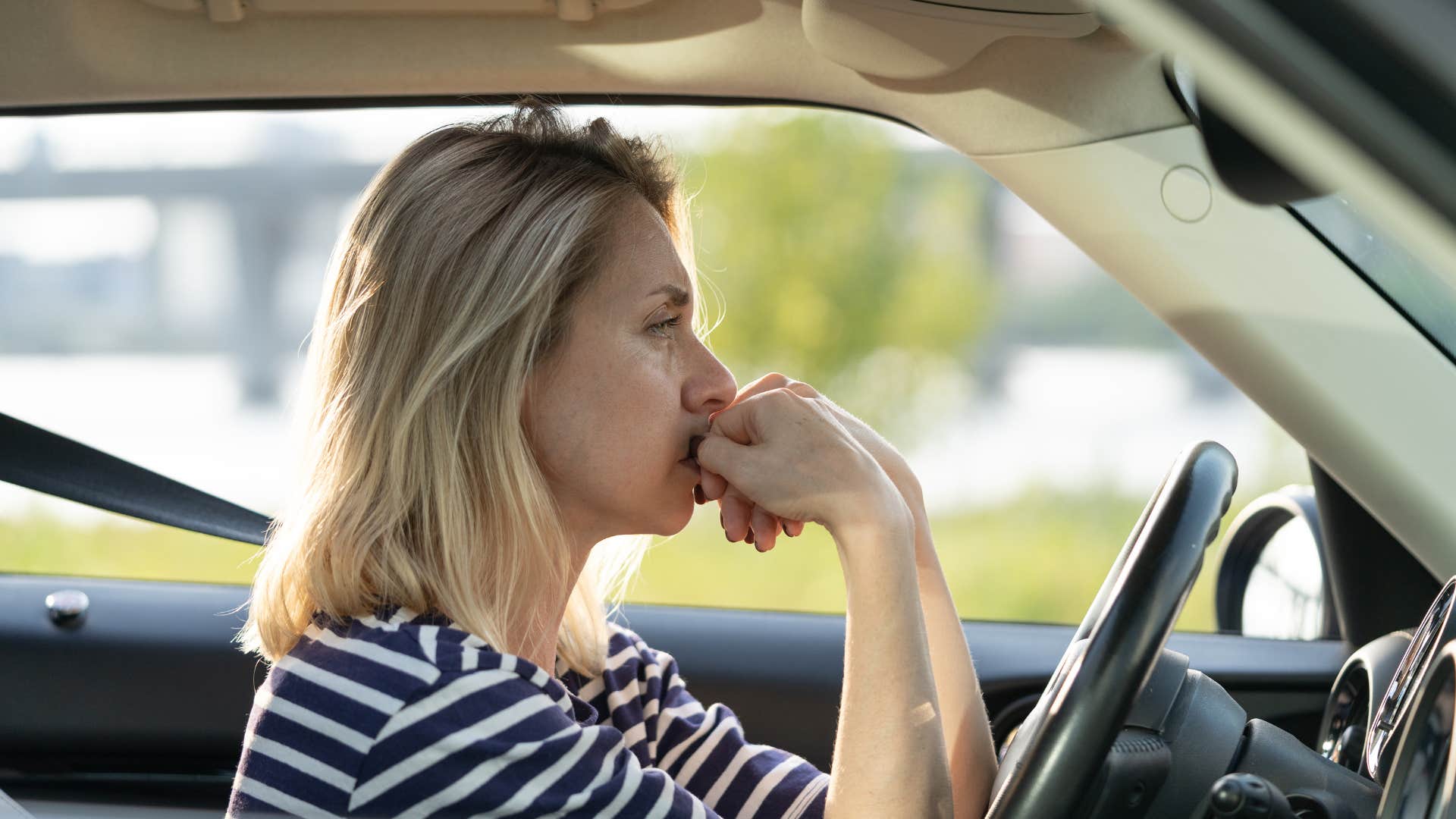 DimaBerlin / Shutterstock
DimaBerlin / Shutterstock
As women get older, anxiety and other medical conditions can become increasingly more severe. This can greatly impact the way they are able to move from day to day, and this involves their ability to drive and ride as a passenger.
While both men and women tend to have low mental health and quality of life, a 2017 study found that women score higher when showing signs of driving-related anxiety. Amaxophobia, the fear of driving or being a passenger within a vehicle, tends to affect women more often than it affects men, and it usually starts taking effect between the ages of 20 and 40.
Aubrey Bailey, a physical therapist, recommends working to treat this anxiety and phobia through the use of psychotherapy, medications, and focusing on deep breathing and mindfulness that can help reduce the symptoms.
7. Loss of confidence
 Motortion Films / Shutterstock
Motortion Films / Shutterstock
With age comes a loss of confidence regarding driving for most women. This loss of confidence influences their fear of driving as well as being a passenger in a vehicle. Based on a 2023 study, women tend to limit the amount they drive as they get older more than men do.
“Our study identifies women’s less favorable assessments of their abilities as a primary determinant of their more rapid transition from driving. Older women’s transportation mobility could be better maintained through programs focused on enhancing their skills, as well as driving confidence,” according to the NLM.
As women get older, they get less confident behind the wheel, and many, instead of trying to enhance their skills, choose to limit and avoid driving altogether.
8. Increased fragility
 Zapylaiev Kostiantyn / Shutterstock
Zapylaiev Kostiantyn / Shutterstock
As women get older and their fragility increases, many develop a fear of driving. The physical and cognitive decline that results from fragility makes operating a vehicle more difficult and increases the likelihood of an accident occurring.
Fragility in individuals between the ages of 60-64 and older accounts for a high percentage of vehicle-related fatalities, according to the NLM. Women also experience more fragility with age than men do. Women in their 60s have a lifetime risk of fractures that is about 44% while men only have a 25% risk, making it understandable why women tend to fear driving due to fragility more than most men would.
9. Social expectations and criticism
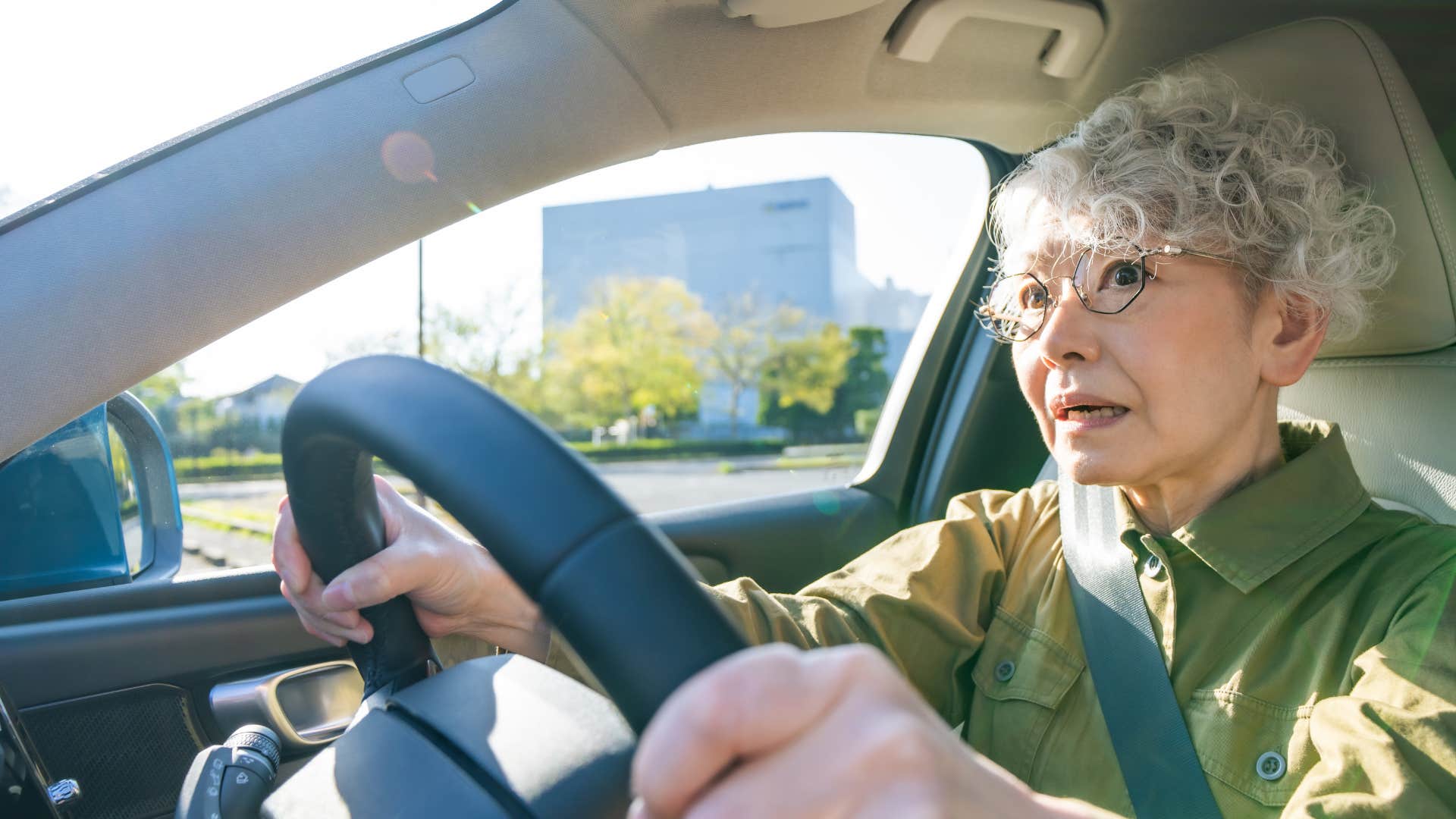 metamorworks / Shutterstock
metamorworks / Shutterstock
Social expectations and criticism regarding women driving are a major contributor to the fear of driving they experience as they get older. Age and gender stereotypes may seem harmless, but after a long time of hearing these criticisms, they start to have a negative impact on a woman’s confidence.
La Jolla Nurses Homecare recommends not criticizing a woman’s driving while she is in the midst of operating the vehicle, but rather revisiting your concerns at a later time in a gentle manner. If you do not wait, you risk her feeling uncomfortable with driving and her confidence being hindered.
“Try your best to wait for the right time and place to talk to your loved one about her driving. She’s less likely to be defensive, and you can have a meaningful conversation that actually helps both of you,” they explain.
10. Poor concentration
 Photoroyalty / Shutterstock
Photoroyalty / Shutterstock
As hormones fluctuate during perimenopause and menopause, as well as cognitive decline takes place with age, women who are getting older will find it more and more difficult to concentrate. This poor concentration may cause women to become overwhelmed while driving and increase their anxiety around driving and being a passenger.
A 2024 study published by the NLM found that “most women report experiencing problems with memory and concentration during the perimenopausal period.” The study also states that in order to manage cognitive declines that arise, pharmacotherapy, as well as being engaged in activities that promote brain health, are two things individuals can try. If the deterioration is severe, women should consider speaking to their healthcare provider to discuss other possible treatments.
11. Loss of hearing
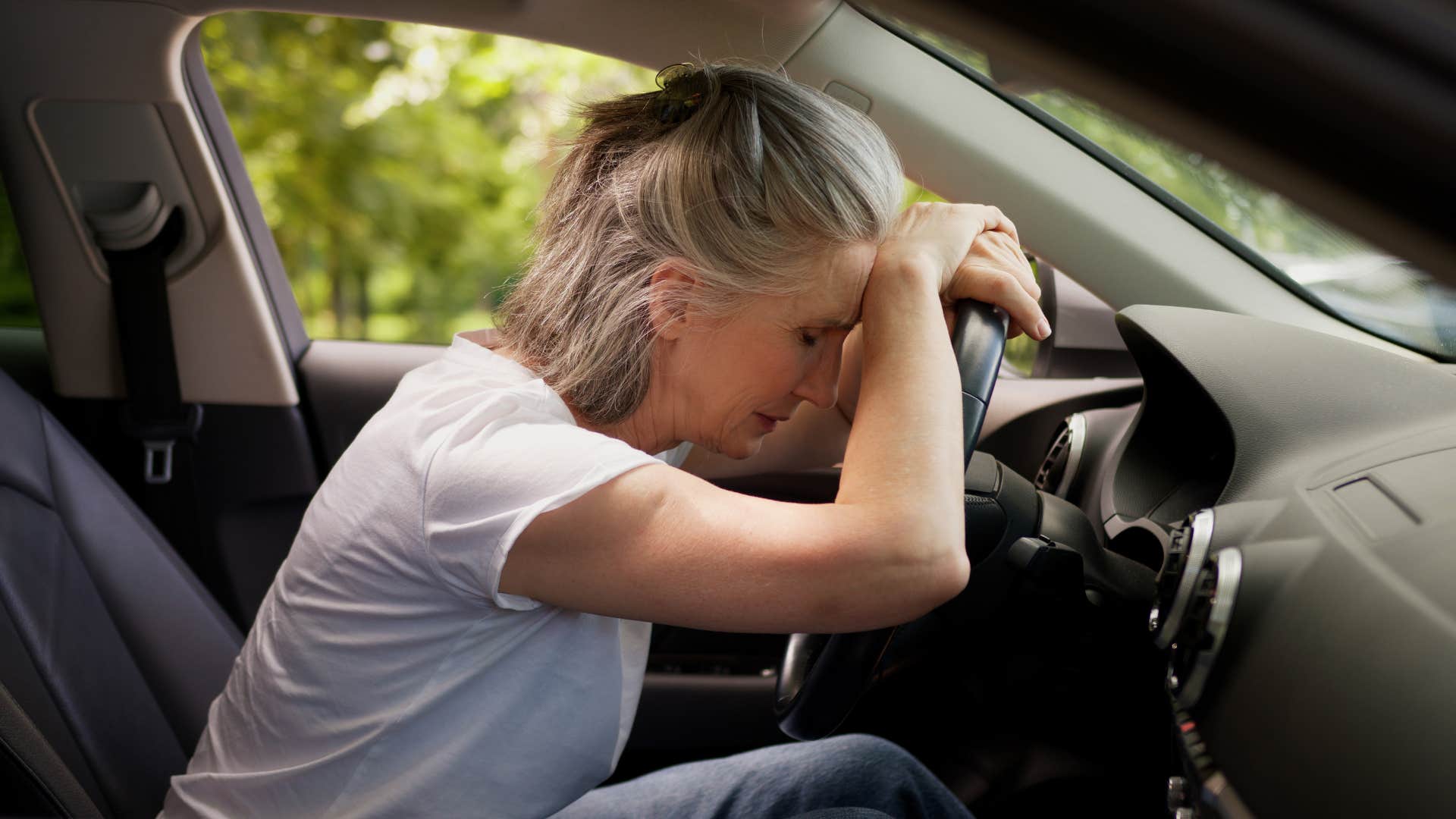 MAYA LAB / Shutterstock
MAYA LAB / Shutterstock
As women age, many experience hearing loss. This causes them to develop a fear of driving and riding in a vehicle because they feel as though they don't have as much control over the situation as they would like.
To help manage the changes in hearing you may be experiencing, the NIA recommends that you “have your hearing checked at least every three years after age 50 or more frequently if you have had chronic exposure to loud noises or have other risk factors for hearing loss. Discuss your concerns with your doctor as there may be treatments that can help.”
If you find yourself growing a serious fear of driving and being a passenger in a vehicle, it's important to speak with your healthcare provider as well as find calming techniques to manage this anxiety. You should also practice self-regulation in order to determine when it is safe for you to operate a vehicle and when it is best if you let someone else drive you.
Kamryn Idol is a writer with a bachelor's degree in media and journalism who covers lifestyle, relationship, family, and wellness topics.

